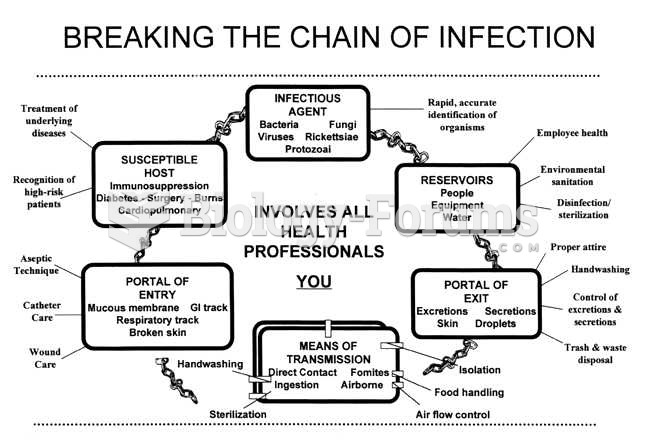|
|
|
Did you know?
In 2006, a generic antinausea drug named ondansetron was approved. It is used to stop nausea and vomiting associated with surgery, chemotherapy, and radiation therapy.
Did you know?
Approximately one in four people diagnosed with diabetes will develop foot problems. Of these, about one-third will require lower extremity amputation.
Did you know?
The FDA recognizes 118 routes of administration.
Did you know?
Illicit drug use costs the United States approximately $181 billion every year.
Did you know?
More than 150,000 Americans killed by cardiovascular disease are younger than the age of 65 years.







